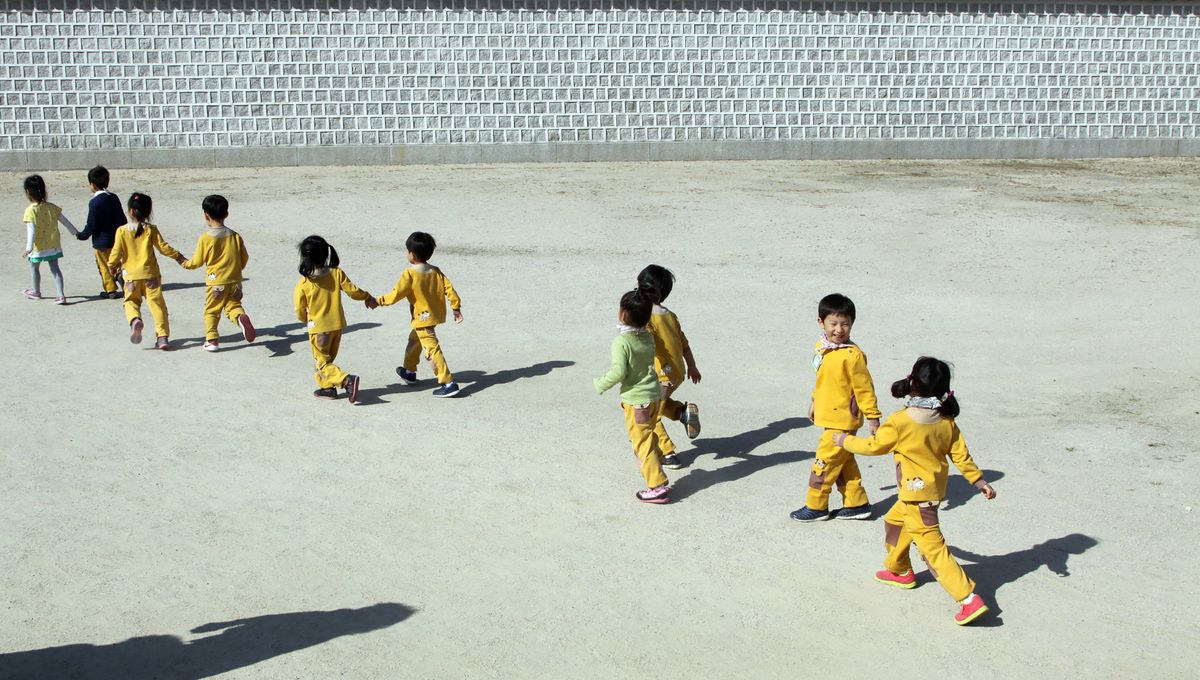
Over 200 people, including more than 60 children and infants, have entered a landmark legal battle against the South Korean government over their response (or lack thereof) to climate change.
Four cases between 2020 and 2023 were merged and put in front of South Korea’s Constitutional Court last month. As reported by Nature, the South Korean court started its second and final hearing of the case on Tuesday, May 21. A decision on the case is expected later this year.
One of the cases, Woodpecker et al. v. South Korea, involves a baby boy who was not yet born when his parents filed the case in 2022 on his behalf, along with 61 other plaintiffs under the age of five.
The claimants argue the government of South Korea has not done enough to reduce greenhouse gas emissions and curb the impact of climate change. As such, they claim, the state is failing to protect their fundamental rights, including the right to life, the right to pursue happiness, the right to general freedom, the right to property, and the right to a healthy environment.
While similar legal cases have been launched in the Americas and Europe – with some success – the case is the first climate litigation of its kind in East Asia.
South Korea is heavily dependent on fossil fuels, with around 60 percent of its electricity in 2023 being generated by coal, gas, and oil. Some steps have been taken to remedy the problem. In 2021, South Korea updated its commitment to reduce greenhouse gases by 40 percent by 2030 compared to 2018 levels.
Despite their well-intentioned words, many argue the government isn’t taking the issue seriously enough. South Korea’s rating for its action against climate change is classified as “Highly Insufficient” by Climate Action Tracker, meaning their current climate policies and commitments are not consistent with the Paris Agreement’s 1.5°C (2.7°F) temperature limit.
“Strategic litigation is a powerful tool which is being increasingly used to enforce states’ binding duty to protect people’s rights from the adverse impacts of the climate crisis and ensure there is no backsliding on the international commitments they made in 2015 to prevent average global temperatures from rising above 1.5°C this century,” Jiyoun Yoo, Amnesty International Korea’s Climate Justice Campaigner, said in a statement.
“The climate crisis is already upon us but the effects will be felt even more intensely by future generations. Cases like this are vital to safeguarding citizen’s rights. Taking legal action against a state is often a long and arduous process which requires patience and perseverance and the courage of these pioneering plaintiffs is to be admired and applauded,” added Yoo.
Over half of climate cases around the world have reportedly seen “favorable” outcomes, although there’s some debate about whether climate litigation actually has a meaningful impact on climate change. Whether or not they win in court, however, these kinds of high-profile cases do boost public awareness and gradually build pressure against governments and corporations to act.
Source Link: Kids And Babies In South Korea Are Suing Government Over Climate Change